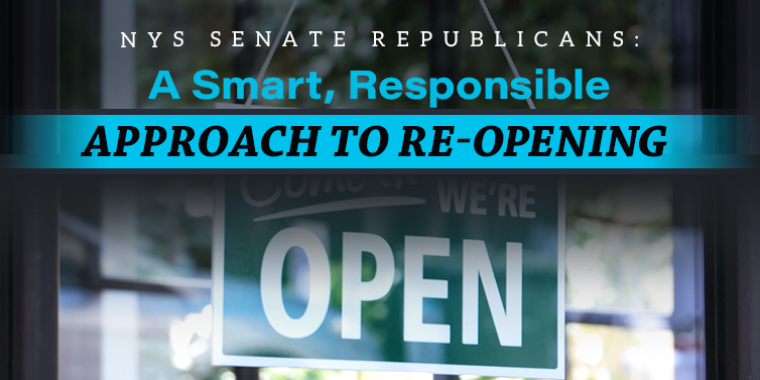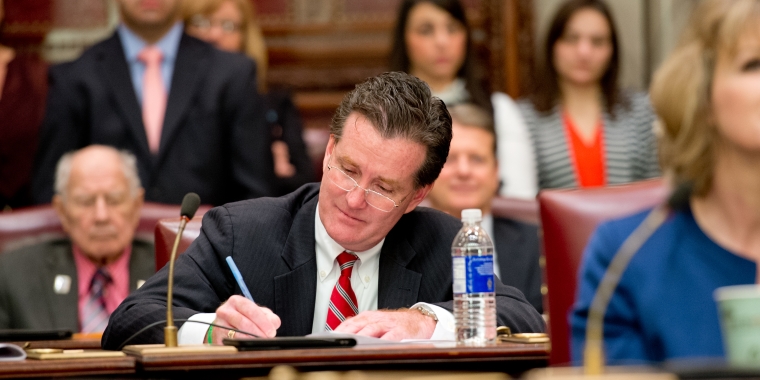
Senator Flanagan Announces Budget Reform Passage In Senate
Senator John Flanagan (2nd Senate District) today announced that budget reform legislation he sponsored to increase accountability and transparency in the New York State budget process has passed the Senate. The legislation, which will also help ensure on-time budgets, reflects an agreement between the Senate, Governor and Assembly.
"By reforming the budget process, we can create an economic climate that will benefit all New York State residents. This legislation, when enacted into law, will open the process to greater public scrutiny and allow everyone to view state spending and state policy," said Senator Flanagan. "This is the people's money and the people have a right to see how it is budgeted and utilized."
The budget reform bill which passed the Senate today includes the following provisions:
-Requires that every dollar the Legislature adds to the budget be clearly lined out or agreed to by the Executive and Legislature, and publicly voted on in both the Assembly and the Senate;
-Requires that the Legislature assemble joint budget conference committees within 10 days of submission of the Executive Budget. This will provide more time for discussion and agreement on the issues presented in the budget;
-The legislature will be required to explain fiscal impacts of changes it makes to the governor's budget bills;
-Plain language impact statements will be prepared on a range of program areas, including local governments;
-The Governor must provide greater itemization of spending in the budget. This includes funds for Temporary Assistance for Needy Families (TANF), Medicaid and the Environmental Protection Fund (EPF);
-Accelerates discussions of revenue forecasts and spending projections to November 5th to ensure that the needs of the state are clear earlier;
-The Legislature, working with the Comptroller, must push up the date for joining together to discuss revenue projections which have been a continuing source of disagreement during budget negotiations. If the Legislature is unable to meet their March 1 deadline for this agreement, the Comptroller would have until March 5 to set this revenue amount; and
-There will be a new "rainy day" fund, setting aside three percent of the General Fund in reserve. This funding will be added on top of the current two percent "rainy day" fund for a total of five percent. The new fund can be used in the event of economic downturn or disaster.
Last month, the Senate proposed budget reforms that would go beyond this agreement. That legislation would require that every dollar spent by the Governor, Legislature, Judiciary and all State agencies and appropriated spending for authorities be lined out in the budget.
In addition to greater clarity of state spending, the Senate's budget reform bill would eliminate the need for the State Public Authority Control Board (PACB) to approve capital projects already authorized in the budget. This change would prevent major projects from being delayed for political reasons and bring greater accountability to the process.
The Senate also plans to give second passage to a constitutional amendment, which was passed by both houses in 2005, to ensure that the budget submitted by the Governor addresses only fiscal matters. Currently, there is the ability to create new laws and policy decisions during budget negotiations and the Senate legislation would remove that possibility to ensure that budgetary discussions are confined to issues dealing with state finances.
"Accountability and a streamlined budget process are vital to the future of our state. This first piece of legislation is a great beginning but we need to pass the other components, including mechanisms to ensure on-time budgets, to enact truly needed reform," stated Senator Flanagan. "The residents of this state deserve to know that their government is working for them and they need to be able to see how the process works."
The bill was sent to the Assembly for action and then will be delivered to Governor Eliot Spitzer for approval. It will be in effect as soon as it is signed into law.



